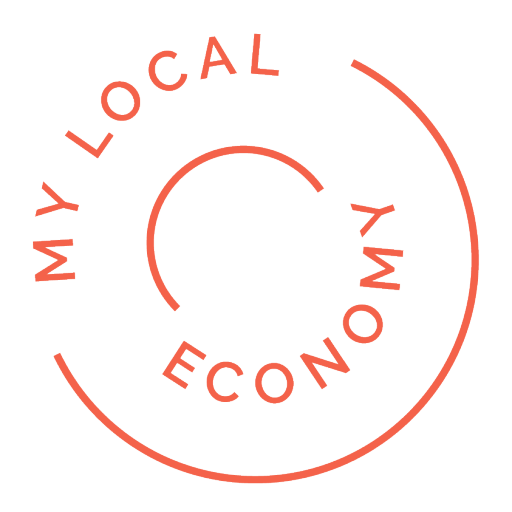So the UK Government finally confirmed they’d be winding up LEPs after briefing in May 2022 and announcement in the March 2023 budget that this was their intention. What does the future hold? well, our Combined Authorities have mostly wound up their LEPs and put in place arrangements that they lead, usually advised by a business board. And some counties have already acted swiftly to start to put in place new arrangements. The lessons from this include:
- The process of winding up LEPs is much more challenging if combining more than one into a single combined authority or replacement partnership or devolution structure
- Some counties have already begun the process, a number have almost complete it. In some cases it has helped that the LEP staff were county employees
- Others have committed to keep the LEP partnership structure and board in place for a number of years, adapting it as needed. Some have created local authority led prosperity boards to deal mainly with infrastructure, housing and public services; leaving public-private boards to pick up enterprise, innovation and skills issues
- Economic development functions still need expert staff, particularly those adept at marshalling stakeholders, accessing government cash, and setting up and administering direct delivery or contracting out of services
- Resources remain very tight, having the depth and breadth of capability and expertise in post-LEP transition remains challenging
- It can be challenging to recruit business board members if they see no role in decision making, or no core objectives or resources to influence
My experience of LEPs
LEPs had a challenging beginning in 2011, announced as a replacement for Regional Development Agencies without any clear objectives or cash.
I worked as an advisor then the interim CEO at a LEP for two years in the early days. The main challenge was that stakeholder expectations were built on RDAs and pre-austerity (decent) public spending for policies like community regeneration and skills. But the reality of LEPs and the austerity economics of the 2011-now (we’re still in austerity) bit hard. It took a while to build capacity, capability and credibility – and to convince a new bunch of board members and stakeholders of the right priorities and course of action.
Of course the main justification for LEPs – that they represented functional geographies – never stood up particularly well. As with local government boundaries and other government functions – there’s no perfect functional boundary. Administrative boundaries will do, but this can lack some strategic scale – and this was one of the reasons the Northern Powerhouse Partnership and Midlands Engine Partnership both got traction.
LEPs successfully built capacity back up and engaged with business
I’ve worked with many LEPs and local authorities. Dedicated professionals in the main, who juggled with many priorities with little available cash. In the main I think LEPs did a good job with the hand they were dealt – which wasn’t always ideal. For example, in my early days as a LEP, lots of business and stakeholder consultation led to the priorities of ‘innovation, enterprise and skills.’ HM Government then announced that most of the funding they’d give to LEPs was for road junctions and small transport schemes. And resources were a constant battle, as the main local public sector partners were facing drastic budget cuts at the time.
Strategic fundholders, such as LEPs and RDAs, are at the nexus of local stakeholders and government – who have big expectations but empty pockets. It’s a tough job to keep them satisfied. Overall I think LEPs did a good job, given their fuzzy inception, uncertain funding environment, and lack of clear objectives from the government.
But England’s urban, local and regional development efforts are undermined by a lack of clear objectives and funding continuities from the centre
Since 2011 we have witnessed a myriad of short-term grant programmes and stop-start initiatives – without any clear central government objectives. The government supports more local decision making one one hand, and then frustrates it with the other. The UK government lacks coherent and credible policies or objectives for the economy, skills, trade, land use planning, infrastructure, housing, or trade. The sustainability and low carbon agenda has never really been fully backed by government.
Will devolution now take the stage?
I’m in favour of local devolution. It needs more ambitious policies and plans from central government, and a more coherent set of objectives and a framework of devolved powers that localities can draw down. Localities need to be able to raise the funds and resources deliver more of their own policies, services and initiatives. Integrated funds over many years would also help. I’m hopeful of progress in the next few years, but there are no concrete plans – from any political party – on which to pin these hopes.
What can we learn from previous restructures and turns of the policy cycle?
As I’ve written before here (and researched and wrote a Ph.D. on in the late 1990s) – I have a few constructive observations and advice…
#1 Say “Yes… and let’s build something even better…” there’s nothing that can be done about the government’s decision, but its far better to learn from past experience to build something even better. Be part of the solution.
#2 The more things change, the more they stay the same – the challenges remain. The economic needs, issues, and challenges remain, some have accelerated or worsened. And these challenges are rooted in long-standing characteristics of the local economy, its firms, and people. This needs reiterated, briefed, highlighted – again, and again, and again. Keep going.
#3 If you have a board, or political group – recruit to add value. Try and pick to ensure they know something about the economy (at least), and economic development and regeneration (hopefully). Representations that adds value.
#4 Business board members are valuable – but a board / or committee needs balance – public, private, community, non-profit. Private-sector board members and partners are useful, but economic transformation requires politicians, persuaders, and diplomats too – people who are good at explaining and advocating things.
#5 There’s never enough money. Be pragmatic. Fight a few fires, keep advocating for the big and small projects, be tactical about the immediate priorities, and the need to continue to invest in longer-term gains.
#6 Keep some continuity in skills and experience. Change and restructuring is a way of life here in the UK. As I write in this article, institutional change always creates a hiatus of reduced and stop-start funding, and this can cause organisations to make staff redundant, downsize or close completely. This can kill institutional memory and capacity. Local economic development is complex, and requires a mix of high-level skills to be effective. The knowledge that has built up in teams over many years, and the networks established with local and national stakeholders cannot be replaced quickly or easily. Those localities who manage to retain knowledge and staff – will be in a better position once the national policies and new institutional arrangements start to kick in.
#7 Get some early wins in. You will need time to bed-in your new organisation or approach. But you should get some early wins. Even if this is accessing funding, grants, etc. Or getting on the coattails of a major new inward investment project. Act like winners that mean business. Don’t fall into the trap of the UK central government – that the first action you will do to launch your new policy – is to conduct a year-long review! (and nothing else).
#8 A local investment plan will need to combine known needs and service models, with the agility to adapt and change to the economy and new policy directives. It might help to break out of the traditional linear strategy process – lots of tips on economic strategies and investment plans here.
#9 Understanding and tracking the economy is vital. You can only design impactful services or interventions if you know about your economy in detail. You will respond quicker to changing economic circumstances, if you regularly monitor economic performance and issues in your local area, region and nationally.
#10 Reach beyond your grasp. The best economic development organisations are the ones with a long-term mission for the local economy, and the improvement plan to achieve it, with the capability to juggle and adapt as funding sources and government priorities change. I’ve provided a few tips here.
What does a successful economic development organisation look like?
In my experience, successful economic development organisations display the following characteristics and behaviours:
- Clear objectives and sense of purpose
- Entrepreneurial, business-like in approach, makes tough decisions – with a collegiate approach
- Recognise and practice the different modes or working required for different communities and stakeholders – and staffing reflects this
- Winning resources for their community is a significant driver. Highly effective at promotion and advocacy
- Outward-looking, inspirational, will seek out good practice and useful relationships
- Able to focus on a few objectives and goals that can make the biggest difference, but also have a long-term plan and objectives – operates “strategic pragmatism” as the modus operandii
- Achieves delivery results – as well as being good at strategies and marketing
- Board members that are effective advocates and bring networks and skills
About Glenn
Glenn runs his own consultancy, Mylocaleconomy. We help local leaders translate their economic ambitions into winning advocacy and solutions that get funded. We work all over the UK – from the Highlands of Scotland to Wales, Bristol, Teeside, North East England, Gloucestershire, London, Cambridgeshire and Sussex.
We love challenging assignments, complex opportunities, intractable problems. Our vocation is to help city, region and local economies succeed and for prosperity to be sustainable and shared.
Get in touch via LinkedIn messaging or the contact form on our website.

